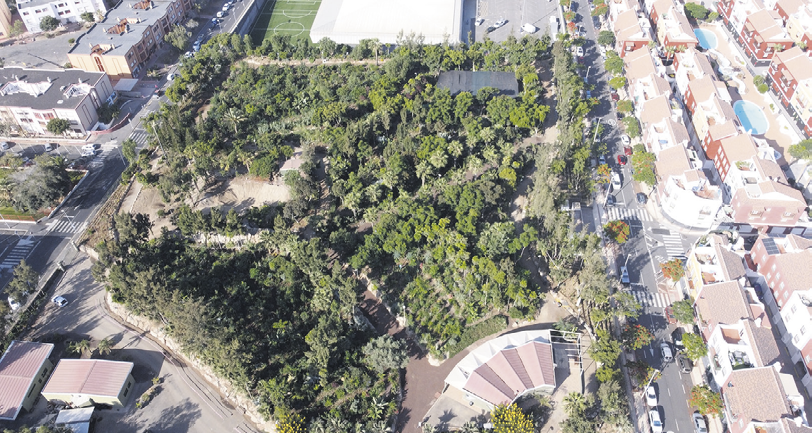
The urban lung of Adeje, a productive and edible forest unprecedented in the South of more than 30,000 square meters, which will bring together 25,000 plant species (fruit, ornamental, aromatic, medicinal and culinary), has become the spearhead of the City Council before the climate crisis. Now, the Government of the Canary Islands wants to promote this park model throughout the Archipelago.
In addition to a botanical garden, with a planned lagoon of 290 cubic meters, wetlands, trees and palm trees, the new enclosure will have an open nature classroom in which the different techniques that are applied in agroforestry, a productive system that integrates trees, pastures and livestock in the same space. At the moment, 1,500 square meters of the park are already used for growing vegetables, a part of which goes to the Food Bank.
Experts emphasize that parks of these characteristics provide environmental benefits and contribute to reducing the greenhouse effect, preventing soil erosion and improving the level of groundwater. It is estimated that one hectare of forest absorbs 18 tons of CO2, produces 12 tons of oxygen and provides another 13 of organic matter, in addition to being a natural barrier to wind, rain and noise. With this commitment, the Adeje City Council reinforces its policy of “triple sustainability” (environmental, social and economic) and sends a message abroad: global measures can be supported from the local level to stop the deterioration of the planet.
“This productive forest shows a commitment to the environment, we are facing a change of mentality, of greater environmental awareness, where the municipality and its tourist destination, Costa Adeje, seeks a substantial improvement in the care and defense of the environment,” he said yesterday Mayor José Miguel Rodríguez Fraga during a seminar in which he underlined the importance of the tourism industry and the agricultural sector “connecting”, and where he announced that the second phase of the forest will promote kilometer zero, “to acquire the most products as close as possible and link them to our culture and idiosyncrasy ”.
In the closing ceremony of the seminar, which was attended by prominent experts in sustainable development, the Minister of Ecological Transition, José Antonio Valbuena, whose department has contributed 370,000 euros to the project, took part, advancing the idea of extrapolating the Adejero project to other points of the Archipelago in this legislature.
The Central Park of Adeje, its official name, received in November 2019 the visit of the lawyer and environmental activist Robert Kennedy, nephew of United States President John Fitgerald Kennedy, who planted a dragon tree “as a symbol of a better and sustainable world in the fight against climate change”.
















